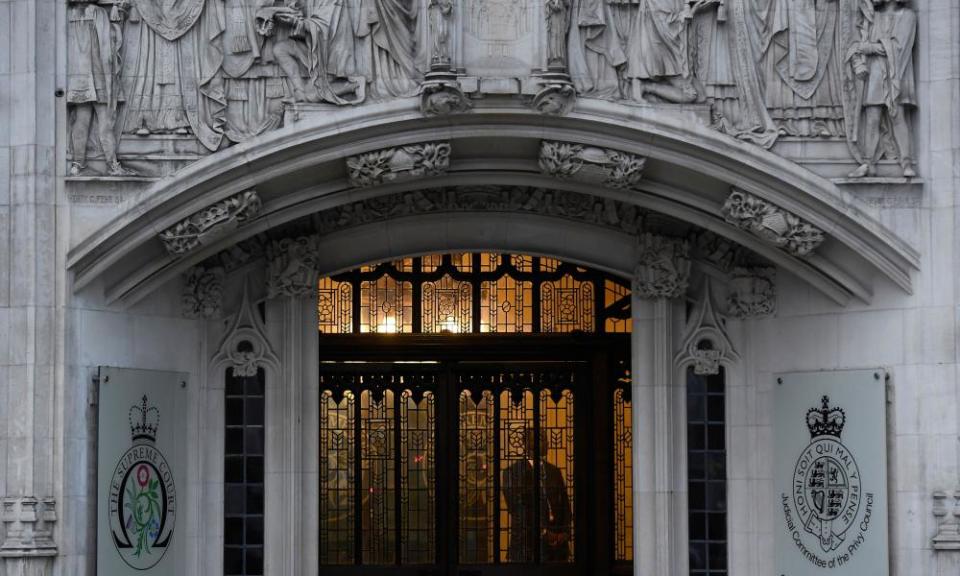Scottish prosecutors 'in cahoots with paedophile hunters', court told

Prosecutors in Scotland have been operating “in cahoots” with so-called paedophile huntings groups, the UK’s supreme court has been told.
Lawyers for Mark Sutherland, a paedeophile who is appealing against his conviction using evidence collected by an anti-grooming group in Glasgow, argued there was “systemic, tacit encouragement” by the crown of sting operations where an adult decoy, pretending to be a child, engages with an alleged abuser online.
Speaking for the appellant, Gordon Jackson QC said: “There is huge disquiet about the operation of hunter groups … you can have all the guidance you like but what we have is a tacit encouragement to these groups because [the crown] prosecutes almost all the cases they bring.”
Describing the activities of online child abuse activist groups as “virtue testing” rather than entrapment, he added: “The fact it is an abhorrent crime doesn’t make it a legitimate means of gathering evidence.”
Following the virtual hearing, which is being following closely by authorities across the UK, the supreme court is expected to rule definitively on whether the covert activities of such groups are legal and compatible with human rights protections.
Last summer a Guardian investigation revealed a surge in cases going through the Scottish courts based on evidence gathered by these groups. The investigation also highlighted significant concerns about how these covert methods sit alongside law enforcement.
This year HM Inspectorate of Constabulary in Scotland (HMICS) estimated that almost half of online grooming cases resulted from such activities.
Sutherland is appealing on the basis that his investigation by the group Groom Resistance Scotland, and the use of the resulting evidence by prosecuting authorities, breached his right to respect for his private life and correspondence under article 8 of the European convention on human rights (ECHR).
When Sutherland was tried at Glasgow sheriff court in 2018, the jury heard he had been matched on the dating site Grindr with someone who claimed to be a 13-year-old boy. Sutherland went on to sent him explicit pictures and made arrangements to meet up in person.
The person Sutherland had been talking to was in fact a member of Groom Resistance Scotland, and when Sutherland arrived at Partick bus station to meet the boy, he was intercepted by the vigilante group who streamed their encounter live on social media and handed their communications to the police.
Sutherland, who was previously imprisoned for similar offences in 2015, was unanimously found guilty of two charges of attempting to communicate indecently with an older child and jailed for two years.
In its strategic review of Police Scotland’s response to online child sexual abuse, published in February, HMICS recommended that the police should consider resourcing its own covert work in order to reduce the opportunities for vigilante groups.
Oliver Braid, of the Glasgow-based Wolf Pack UK, said: “The appeal doesn’t seem to have garnered much concern in the community in comparison with other legal matters that teams have faced.”
The Guardian understands that during lockdown, activist groups have continued their activities – with some reporting an increase in grooming – but have handed the chat logs they collect directly to the police instead of confronting the alleged paedophiles themselves.

